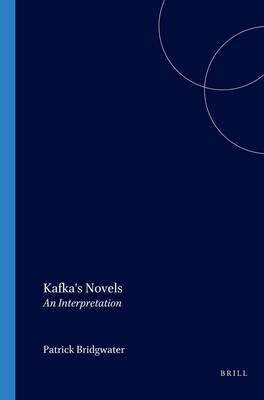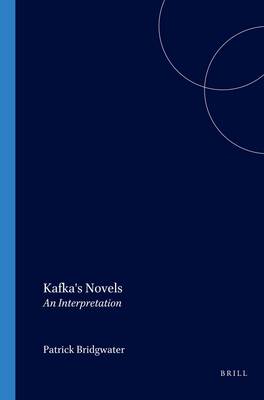
- Retrait gratuit dans votre magasin Club
- 7.000.000 titres dans notre catalogue
- Payer en toute sécurité
- Toujours un magasin près de chez vous
- Retrait gratuit dans votre magasin Club
- 7.000.000 titres dans notre catalogue
- Payer en toute sécurité
- Toujours un magasin près de chez vous
Description
Kafka's three novels, to be understood as an ever more intricate portrayal of the inner life of one central character (Henry James's 'centre of consciousness'), each reflecting the problems of their self-critical creator, are tantamount to dreams. The hieroglyphic, pictorial language in which they are written is the symbolic language in which dreams and thoughts on the edge of sleep are visualized. Not for nothing did Kafka define his writing as a matter of fantasizing with whole orchestras of [free] associations. Written in a deliberately enhanced hypnagogic state, these novels embody the alternative logic of dreams, with the emphasis on chains of association and verbal bridges between words and word-complexes. The product of many years' preoccupation with its subject, Patrick Bridgwater's new book is an original, chapter-by-chapter study of three extraordinarily detailed novels, of each of which it offers a radically new reading that makes more, and different, sense than any previous reading. In Barthes' terms these fascinating novels are 'unreadable', but the present book shows that, properly read, they are entirely, if ambiguously, readable. Rooted in Kafka's use of language, it consistently explores, in detail, (i) the linguistic implications of the dreamlike nature of his work, (ii) the metaphors he takes literally, and (iii) the ambiguities of so many of the words he chooses to use. In doing so it takes account not only of the secondary meanings of German words and the sometimes dated metaphors of which Kafka, taking them literally, spins his text, but also, where relevant, of Czech and Italian etymology. Split, for ease of reference, into chapters corresponding to the chapters of the novels in the new Originalfassung, the book is aimed at all readers of Kafka with a knowledge of German, for the author shows that Kafka's texts can be understood only in the language in which they were written: because Kafka's meaning is often hidden beneath the surface of the text, conveyed via secondary meanings that are specific to German, any translation is necessarily an Oberflächenübersetzung.
Spécifications
Parties prenantes
- Auteur(s) :
- Editeur:
Contenu
- Nombre de pages :
- 376
- Langue:
- Anglais
- Collection :
- Tome:
- n° 67
Caractéristiques
- EAN:
- 9789042008953
- Date de parution :
- 01-01-03
- Format:
- Livre broché
- Format numérique:
- Trade paperback (VS)
- Dimensions :
- 170 mm x 239 mm
- Poids :
- 3379 g

Les avis
Nous publions uniquement les avis qui respectent les conditions requises. Consultez nos conditions pour les avis.






